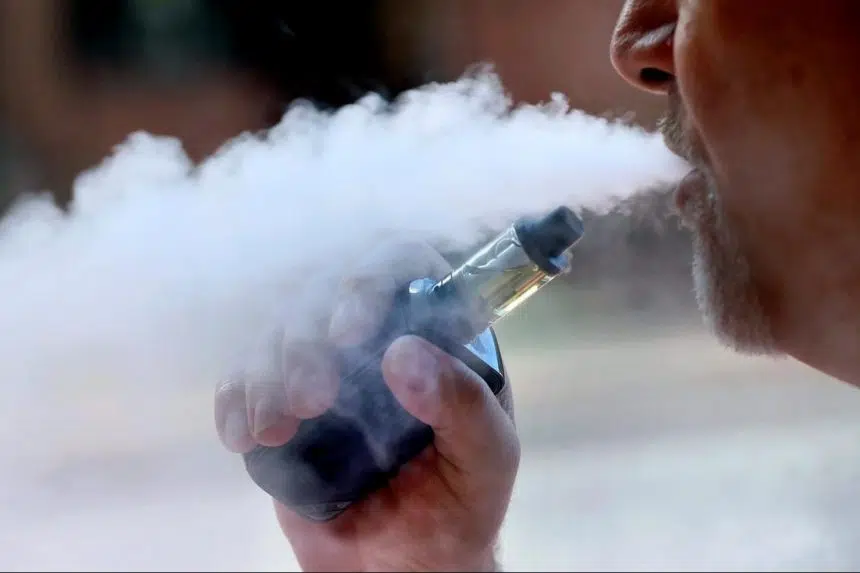A teen from London, Ont., who was using e-cigarettes daily suffered a severe case of pulmonary illness, local health officials announced Wednesday, saying they believe it is the first confirmed case of vaping-related lung disease in Canada.
The Middlesex-London Health Unit said the youth was initially on life support but is now recovering at home after being treated in an intensive care unit.
Dr. Christopher Mackie, the unit’s medical officer of health, said doctors investigated the case thoroughly and ruled out other causes for the illness such as cancer and immune-related diseases.
“The only issue that was identified was that the individual vaped e-cigarettes,” Mackie said. “This individual was using e-cigarettes at least daily.”
Health Canada has been urging people who vape to watch for symptoms such as a cough, shortness of breath, fatigue, diarrhea, vomiting and chest pain. It has also said that health-care professionals should ask patients about their use of e-cigarette products if they have respiratory symptoms.
Officials in the United States have been investigating a mysterious surge of severe breathing illnesses linked to vaping marijuana in recent months. They have identified 380 confirmed and probable cases in 36 states and one territory, including at least six deaths.
Some U.S. researchers suspect the cause is vitamin E acetate, which is used as a thickener in vaping products, and known to trigger pneumonia when inhaled.
The report about the London, Ont., case came just hours after the province’s health minister ordered all public hospitals to report vaping-related cases of severe pulmonary disease.
Christine Elliott said she has become increasingly worried about vaping.
“In light of the growing evidence, I have become increasingly concerned about the prevalence and possible health consequences of vaping, particularly as they affect our youth,” she said in a statement. “At the same time, it has become abundantly clear that we do not have access to sufficient data and information to understand the potential scope of this issue.”
A spokeswoman for Elliott later said the London, Ont., case “just highlights the importance of collecting this sort of data from hospitals so that we can move forward to find evidence-based solutions.”
Alberta has also started legally requiring provincial health-care professionals to report suspected cases under their public health act.
British Columbia’s health ministry said last week that it was preparing a response to the issue, including education and awareness, as part of a strategy to reduce the number of youth vaping in the province.
Nova Scotia’s chief medical officer of health has said he is sending informal email inquiries to respiratory specialists and intensive care units at the province’s hospitals to look for similar cases as what’s occurring in the U.S.
The six who died in the U.S. were all adults and some had pre-existing lung problems or other conditions that may have made them more susceptible. The Centers for Disease Control in the U.S. said it doesn’t know if the illness is new or just newly recognized.
— With files from Nicole Thompson and the Associated Press
Liam Casey, The Canadian Press







